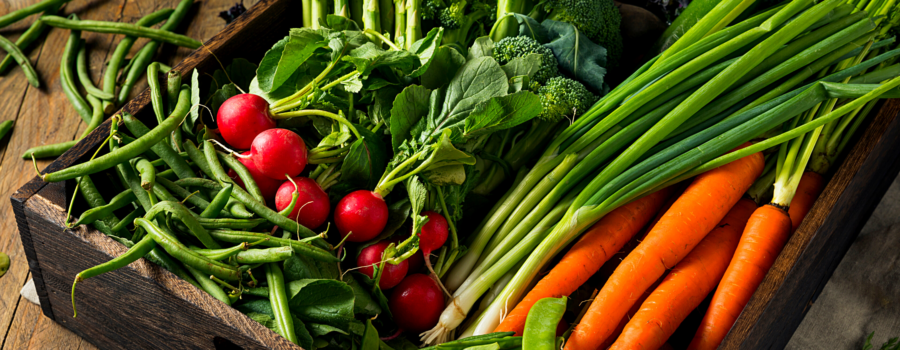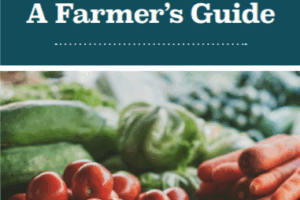When you think of a farmers market, the image of a bright, family-friendly, open air market comes to mind. Streets lined with vendors selling farm fresh food and handmade wares with people gathering to shop for groceries and more. Unfortunately, the COVID-19 pandemic has caused many markets to close or change their operations altogether, threatening the livelihood of the local producers they’ve always supported. Luckily, online platforms like LFM provide resources for farmers markets to support their farmers and communities.
Farmers markets provide essential services to their producers for regular sales, marketing, a customer base, and more, with producers often relying on the market for a majority of their farm income. When we transpose the traditional physical market to an online market, these services are maintained and even increased. (Check out our blog post, “How to Take Your Farmers Market Online Successfully”) Many farmers do not have the build up of knowledge, technology, and the systems needed to fully take on an online market of their own. By providing an online farmers market in addition to or as a replacement for the physical market, farmers markets are continuing to support and grow their producers’ longer term capabilities. The online farmers market service can help prepare producers so that maybe in the future it might make sense for them to have their own online stores, as well, even if it’s too much of a leap for them at this time.
What does an online farmers market do to the overall local food system?
Online farmers markets strengthen local food systems by providing a flexible alternative to the physical market. Online markets are not subject to bad weather, health crises, space limitations, or other conditions that would shut down an in-person market, thus making the local food system more resilient. Producers are able to reach not only their regular customers, but a whole new customer base that might not attend the farmers market otherwise. The farmers market plays a huge role in the fiscal stability of many local farmers, and an online market is an extension of that service.
How does the online farmers market benefit you?
In 2020, farmers markets utilizing the LFM platform saw an average order size of $59, with some markets averaging up to $179 per order. In contrast, studies done by the USDA have shown that the average amount spent at a physical farmers market to be just $15-$30 per visit. Not only did customers spend more money with LFM online farmers markets, 56% of LFM’s online farmers market customers ordered on average more than 7 times over a 30-week season (April-Oct) or once every 4 weeks. Looked at another way, more than half of online customers spent nearly $400 per season at their respective markets.
Online farmers markets provide a consistent, flexible, and safe alternative to the physical market for both producers and customers. During a time of constant regulation changes, being able to offer your farmers an alternate sales’ route that is still an entity of the farmers market brand is a massive benefit to the local food system.
The Bigger Picture
So what is the bigger picture role for farmers markets going online? For one, online markets provide a marketing system for their producers, by showcasing products and providing information all in a centralized site. Additionally, it allows your producers to experience selling online without investing a ton of resources. It’s common for farmers market vendors to resist e-commerce, but it’s crucial for agricultural sales to progress beyond one system. If farmers and markets do not go online in a way that’s approachable to them, they’re going to go by the way of the dinosaurs – and nobody wants that.
It’s important to realize how farmers markets going online is a modern approach to providing an essential service, especially to their farmers that would otherwise have a challenging time adopting an online platform of their own. When looking at the bigger picture, online farmers markets are not only helping their constituents access local food, they’re providing a much greater service to the local food economy as a whole.
Learn more about how LFM can enhance your farmers market.
Register for a Webinar today!



